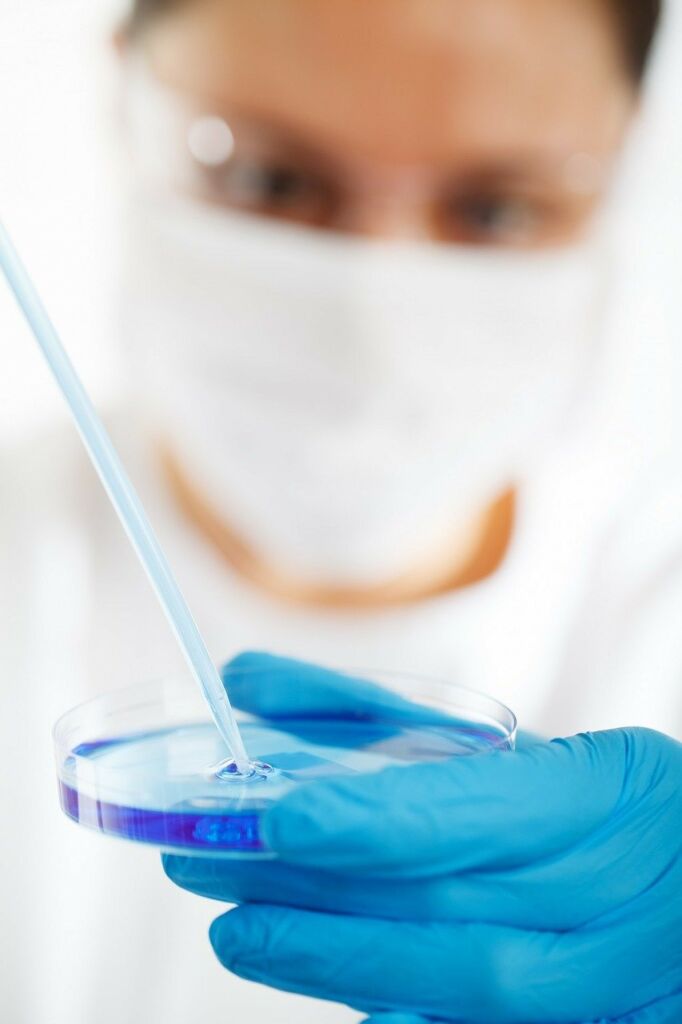
Accreditation is a process applied by many professional bodies to ensure that courses provide the content and experience which will enable graduates to obtain appropriate jobs and to develop satisfying and rewarding careers. APS initiated an accreditation process for pharmaceutical sciences courses because pharmaceutical scientists play such a crucial role in the research and development of new medicines and in broader roles in the pharmaceutical industry.
The pharmaceutical science course at the University of Greenwich became the first APS accredited course in 2018. This is the first time that a pharmaceutical science course has been accredited in the United Kingdom and it is also, we believe, a world first.
Introduction
The Academy of Pharmaceutical Sciences (APS) is the UK-based professional membership body for Pharmaceutical Scientists. We represent individuals and organisations from around the globe, throughout their development, in the delivery of excellence in the pharmaceutical science sector. Pharmaceutical scientists are experts in the research, development, and manufacture of medicines. They have a major role in the regulation of medicines and understanding their use in patients.
Our four key strategic themes, which are the foundation of all APS activities, are:
- Establish and promote the reputation of Pharmaceutical Sciences and Scientists
- Influence policy
- Further scientific knowledge
- Promote careers
Accreditation is one of the mechanisms through which APS can promote good practice in the training and development of pharmaceutical scientists and supports two of the APS strategic themes: establishing and promoting the reputation of pharmaceutical sciences and scientists and promoting careers.
In response to a number of enquiries by academic institutions, APS has established an accreditation process for degrees in pharmaceutical science. This process has been reviewed by the Office for Students (www.officeforstudents.org.uk) and our accreditation role is listed on the HESA (Higher Education Statistics Agency) website.
In order to help institutions considering accreditation, APS has prepared some guidelines that cover the process, key learning outcomes, accreditation team and timelines.
If you are interested in discussing this process further, please contact APS at info@apsgb.co.uk and you will be linked to one of the Accreditation Team.
Guidelines for the APS Accreditation Process
These guidelines for educational institutions, pharmaceutical industry employers and students describe what is required in a degree programme that is submitted for accreditation. They define the minimum key requirements of a pharmaceutical science course and include an indicative syllabus to provide guidance on course content. Flexibility is an important element of the accreditation process, however, and no two courses will be expected to have the same content.
APS recognises that several Institutions are providing degrees that combine pharmaceutical science with other disciplines, for example business studies. The accreditation process will seek assurance that the pharmaceutical science level does not drop below 65% of the course and that this is maintained during each year of the course. For adjunct subject areas, APS reserve the right to seek specialist opinion and may consult external examiners.
The use of standards to assure quality and to reflect competencies builds on best practice in design and delivery of modern degree structures and the accreditation process will look for evidence that such standards have been developed and used.
It is expected that accreditation by APS will be seen as helpful by both Institutions and employers and that it will have a substantial benefit in the employability of students achieving success on the approved course.

Accreditation

Accreditation of degree programmes by professional and statutory bodies is a mark of assurance that academic standards are met. A wide range of organisations offer accreditation, and in some instances, such as with the health professions, these are led by regulatory bodies and are mandatory. It is our objective to offer a rigorous process which is voluntary but which nevertheless provides assurance that content and delivery of courses are appropriate to provide graduates with recognised levels of competence.
The APS process is run by professional pharmaceutical scientists with many years of experience in both academia and industry and will provide institutions and students with a credible and independent mechanism to differentiate between degree courses. The aim is to benefit universities, students and employers.
The APS accredits degrees at Bachelor level and Masters level. Pharmaceutical science degrees are multifaceted and the APS is uniquely placed to provide assurance across the full range of disciplines covered.
The APS recognises international and national standards in its accreditation process. The Bologna process in Europe has created ‘the Framework for Qualifications of the European Higher Education Area’ and nationally we have taken account of the UK’s Quality Assurance Agency for Higher Education which issued two relevant Benchmark Statements for Pharmacy and for Chemistry.
Accreditation is usually for a period of 5 years, after which a new submission is required. Should an accredited course fail to achieve re-accreditation, the Academy of Pharmaceutical Sciences (APS) will work with students who are already enrolled on the course to ensure that their achievements and qualifications are appropriately recognised.
An accredited Institution will be expected to notify APS of substantive changes to the course or its assessment procedures during the period of accreditation. The APS will assess the proposed changes and advise if further action is necessary.
Accreditation Process Review
Qualification as a pharmaceutical scientist is a significant first step for many young people who aspire to contribute to the discovery, development and manufacture of medicines. It opens doors to a career in practical science or to positions within the wider graduate employment market.
Accredited programmes are expected to provide students with:
- a broad and balanced appreciation of key concepts in the pharmaceutical sciences;
- a range of practical skills in order that they can understand and assess risks and work safely in the laboratory;
- the ability to apply standard methodology to the solution of problems in pharmaceutical science;
- the knowledge and skills platform which leads to graduate employment or to further studies leading to a professional qualification.
The course descriptors should cover both the academic and extracurricular support available to students as well as detail the course content based on the indicative syllabus provided by APS. However, it is important to emphasize that while this syllabus is indicative it should not be seen as an exclusive route by an Institution.

Key Learning Outcomes
Key Learning Outcomes for accreditation are:
Breadth of Knowledge
Evidence of study of the main branches of pharmaceutical science is provided as well as evidence of how this is developed during the course.
Programme outcomes should include a breadth of understanding of pharmaceutical sciences with the ability to solve problems at the threshold level of competence. This requires integration of different themes within and throughout the course avoiding a ‘silo mentality’.
Depth of Knowledge
Programmes should build on the delivered knowledge base to allow students to appreciate developments which, in some areas, will be at the forefront of the discipline.
Practical Skills
Students must develop a range of practical laboratory skills, including the use of mathematical and statistical processes, and show competency in them.
Competencies
Students must be able to demonstrate to others that they can apply the necessary knowledge and skills across the whole field of the course.
Project Work
Programmes must incorporate some independent investigative methodology.
- These are open ended activities which require students to manage their own learning.
- Activities should require students to apply information that they have learned earlier in the programme to consolidate and extend their knowledge and understanding of the pharmaceutical sciences.
- One or more activities can be incorporated and could include:
– research project;
– literature investigation;
– collaborative project work;
– external placement.
These activities would typically account for 25% of student workload in the final year.
Placement
Any external placements must be subject to assessment against explicit criteria with universities retaining control and supervision of their students.
Professional Skills
Programmes must develop a broad range of transferable skills, the development of which is an essential feature of all degree programmes. Requisite transferable skills will cross-reference to generic skills. These incorporate written and oral communication, data handling, numerical and mathematical ability, time management and an ability to interact with other people.
Programmes should promote a sense of proper scientific conduct and ethical responsibility. Collectively, students’ generic skills should provide a basis to undertake further training of a professional nature.
Students’ competence in the exercise of transferable skills must be assessed and appropriately recognised.

Assessment
Assessment should be varied, appropriate and rigorous, and require students to apply their knowledge and to solve problems.
Universities are encouraged to use a wide range of assessment techniques, suitably matched to aspects of the programme, which have been carefully designed and applied to ensure validity and reliability as discriminators.
Programmes should ensure students are encouraged to:
- complete various forms of in-course assessment with, but not exclusively, evaluation of practical competence;
- apply their understanding of earlier fundamental principles to advanced stages of the programme;
- complete assessments in a diverse range of topics;
- demonstrate their problem-solving abilities;
- critically analyse information, construct synopses, and devise solutions;
- deal with topics expansively using reason and argument.
An appropriate proportion of marks linked to key concepts should be assigned based on formal examination conducted under controlled conditions. Such examinations can be open or closed book.
Progression to subsequent stages of a programme should only be possible when a minimum level of competence has been demonstrated in pre-requisite areas.
Title

The title of a programme should be indicative of content and address the assumptions an employer will make on the graduates’ abilities based on the title. The course must have a minimum pharmaceutical sciences content of 65%.
Quality Assurance
Universities must have robust quality assurance mechanisms in place for all aspects of their programmes.
A clear quality assurance framework should be in place and actively applied to ensure that outcome standards are appropriate, consistent, and fair.
QA processes must at least assure that:
- programmes are adequately supported by learning resources;
- agreed specifications are followed;
- assessments are set at the appropriate standard;
- assessment processes are impartial and robust;
- successful students achieve the stated learning outcomes and are graded accordingly;
- students can progress fairly and effectively;
- content and assessments are regularly and independently reviewed.
Resources
Resources devoted to a programme should provide students with a suitably supportive environment so enabling them to be successful in achieving the stated learning outcomes.
- Accredited degree programmes must be delivered by an appropriate number and level of fully qualified full and/or part-time staff (academic, administrative and technical). Academic staff should be knowledgeable and suitably skilled in the areas they are teaching and able to set assessments to an appropriate standard.
- Universities are expected to provide evidence that students on an accredited programme are adequately supported by appropriate learning resources and support, such as computing and communication facilities (access to software, the internet, and email) and suitable library provision, including appropriate accessibility to key textbooks, major online relevant databases and the primary literature, such as a range of peer-reviewed journals.
- Lecture theatres and classrooms should have demonstration facilities, projection capabilities and internet access. Laboratories should adhere to strict safety guidelines and should house appropriate instrumentation for teaching and research, which should be up-to-date, of high quality and properly maintained.
- Students should have access to appropriate academic and pastoral support to ensure they are given the best opportunities to progress their studies.
- Ultimately, adequate support is judged by whether the resources devoted to a programme provide students with a suitably supportive environment, so enabling them to be successful in achieving the stated learning outcomes.
APS Accreditation Process Timetable
Initial Consultation
Discussions with the accreditation team for guidance on the potential for accreditation and to review requirements and timetable.
Submission of an application consisting of at least:
- A covering summary contextualising the information provided;
- Programme specification;
- Module descriptors;
- External examiners’ reports;
- Assessment strategy;
- Examination papers, model answers and laboratory bench books;
- Statistics on student admission, progression and outcomes;
- Projects;
- QA reports, including any validation documentation;
- Staff involved in course and SSRs, Staff CVs including research activity;
- Student experience, by reference to QA feedback reports and NSS;
- Student handbook, which should include information on mechanisms of student support if not included elsewhere.
Accreditation Team
Each course will be reviewed by a minimum of three assessors, at least one of which will have experience in course design at degree level and at least one other will be an experienced assessor in a related professional field. There will be a paper review followed by a campus visit.
Campus Visit
Usually up to one day, with 2-3 members of the APS accreditation team visiting. It will include:
- Review of initial comments based on the application documentation (circulated in advance);
- Meeting(s) with staff (pre-arranged);
- Meeting with students;
- Feedback meeting.
Decision on Application
- Made by the APS Board on the recommendation of the accreditation team
- May include conditions or recommendations
Indicative Syllabus
Applied Physical, Chemical and Biological Sciences
(Bio) Analytical principles and methods
Drug design and discovery
Cell and molecular biology
Microbiology
Immunology
Pharmaceutical Chemistry
Materials science
Pharmacology, Pharmacokinetics and Pharmacodynamics
Contraindications, adverse reactions, and drug interactions
Absorption, distribution, metabolism, and excretion (ADME)
Pharmacokinetic modelling
Bioavailability and bioequivalence
Prediction of drug properties
Pharmacogenetics and pharmacogenomics
Drug and substance misuse
Clinical toxicology and drug-over-exposure
Molecular basis of drug action
Metabolism
Pharmacology
Pharmaceutical Technology including Manufacturing and Engineering Science and Biotechnology
Manufacturing methods
Quality assurance processes, including raw materials and products in laboratory and manufacturing environments
Sterilisation and asepsis
Environmental control in manufacturing
Packaging types and materials, including the selection of appropriate packaging for a specific product
Formulation and Material Science
Materials used in formulations and devices
Dosage forms
Formulation principles, including those for biotechnology products
Biopharmaceutics, developmental pharmaceutics, pre-formulation and formulation studies
Design and standardisation of medicines
Microbiological contamination
Contamination control
Product stability
Medical devices
Therapeutics
Routes of administration
New therapeutic advances
Infection control
Complementary therapies
Clinical therapeutic uses of drugs
Medicines Regulation
Overview of the development process from target selection to market approval
Evaluation and regulation of new drugs and medicines
Pharmacopoeial specifications and biological standards
Medicines licensing, including product quality, safety, and efficacy
Ethical issues
GMP, GLP, GCP (Good Manufacturing, Laboratory and Clinical Practice)
Governance and Standards
Standard Operating Procedures (SOPs)
Research methodology and research ethics, to include relevance to clinical trials
Risk and quality management
Workplace Regulation
Health and Safety
Equality Act 2010
Freedom of Information Act (FOIA)
Core and Professional Skills
Professionalism
Research (including research methods)
Critical appraisal
- Audit and learning from errors
- Analysis of evidence
- Evaluation of the literature
Problem solving
- Study skills
- Team-working skills
- Integrating knowledge from multiple sources
- Working with incomplete information
Accurate record keeping
Reflective practice [including continuing professional development]
Effective communication
Interpersonal skills
Interpret and interrogate clinical/scientific data
Analyse and use numerical data
Literature searching
Acknowledgements: APS has used recognised accreditation processes developed by others to achieve uniformity of approach to accreditation at graduate and postgraduate levels. The work of the Royal Society of Chemistry and the General Pharmaceutical Council has been particularly useful and material from their documentation has been used in the compilation of this guidance to APS accreditation.
Contact Us

If you’re interested in becoming an Accredited University with the APS, why not drop us a line at info@apsgb.co.uk and one of our Accreditation Team will contact you.

